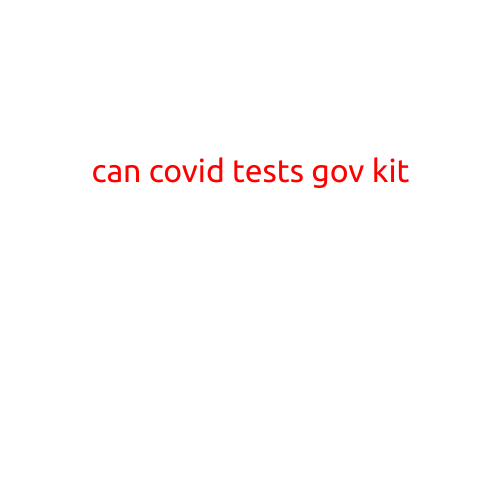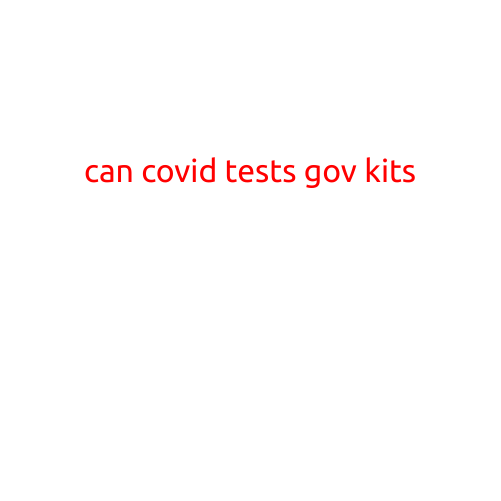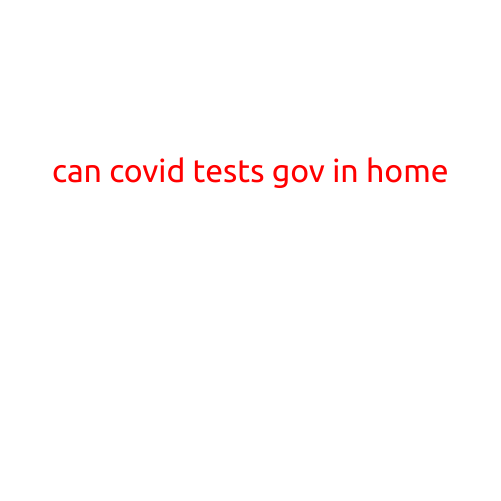
Can COVID Tests Go Wrong? A Guide to Understanding the Government-Recommended Kit
The COVID-19 pandemic has brought about an unprecedented level of scrutiny to the accuracy and reliability of diagnostic tests. With the widespread use of COVID-19 tests, it’s natural to wonder if they can go wrong. In this article, we’ll delve into the government-recommended COVID-19 test kit and explore the potential pitfalls that may arise.
What is the Government-Recommended COVID-19 Test Kit?
The government-recommended COVID-19 test kit is a rapid antigen test designed to detect the presence of SARS-CoV-2, the virus that causes COVID-19. The test kit is approved by regulatory bodies and is widely used in healthcare settings, laboratories, and at home.
How Does the Test Kit Work?
The test kit works by detecting the presence of antigens, which are proteins found on the surface of the SARS-CoV-2 virus. The test involves collecting a nasal swab sample and applying it to the test strip. The strip is then placed in a developer solution, which causes the antigens to react with antibodies. The results are visualized as a pink or blue line, indicating a positive or negative test result.
Can COVID Tests Go Wrong?
While the government-recommended COVID-19 test kit is highly accurate, it’s not 100% foolproof. There are several reasons why a test result may be incorrect:
- False Negatives: A false negative result occurs when a person is infected with COVID-19 but the test does not detect the virus. This can happen because the virus is present in very small quantities or because the test sample is not collected correctly.
- False Positives: A false positive result occurs when a person is not infected with COVID-19 but the test incorrectly detects the virus. This can happen due to contamination of the test sample or incorrect interpretation of the result.
- User Error: Human error can occur during the testing process, such as incorrect specimen collection, inadequate mixing of the developer solution, or misreading of the test results.
- Test Kit Expiration: Test kits have a limited shelf life, and expired kits may not produce accurate results.
- Manufacturing Defects: Defects in the test kit manufacturing process can also lead to inaccurate results.
What to Do If Your Test Result is Incorrect?
If you receive an incorrect test result, it’s essential to seek a confirmatory test from a healthcare professional. They may perform a PCR (polymerase chain reaction) test, which is a more sensitive and accurate method for detecting COVID-19.
Conclusion
While COVID tests are generally reliable, it’s crucial to be aware of the potential pitfalls that can occur. If you’re unsure about your test result or experience symptoms of COVID-19, it’s essential to consult with a healthcare professional. Remember to follow proper testing procedures, use test kits within their expiration dates, and seek confirmatory testing if necessary. By understanding the limitations of COVID tests, we can work towards a more accurate and effective response to this global pandemic.





